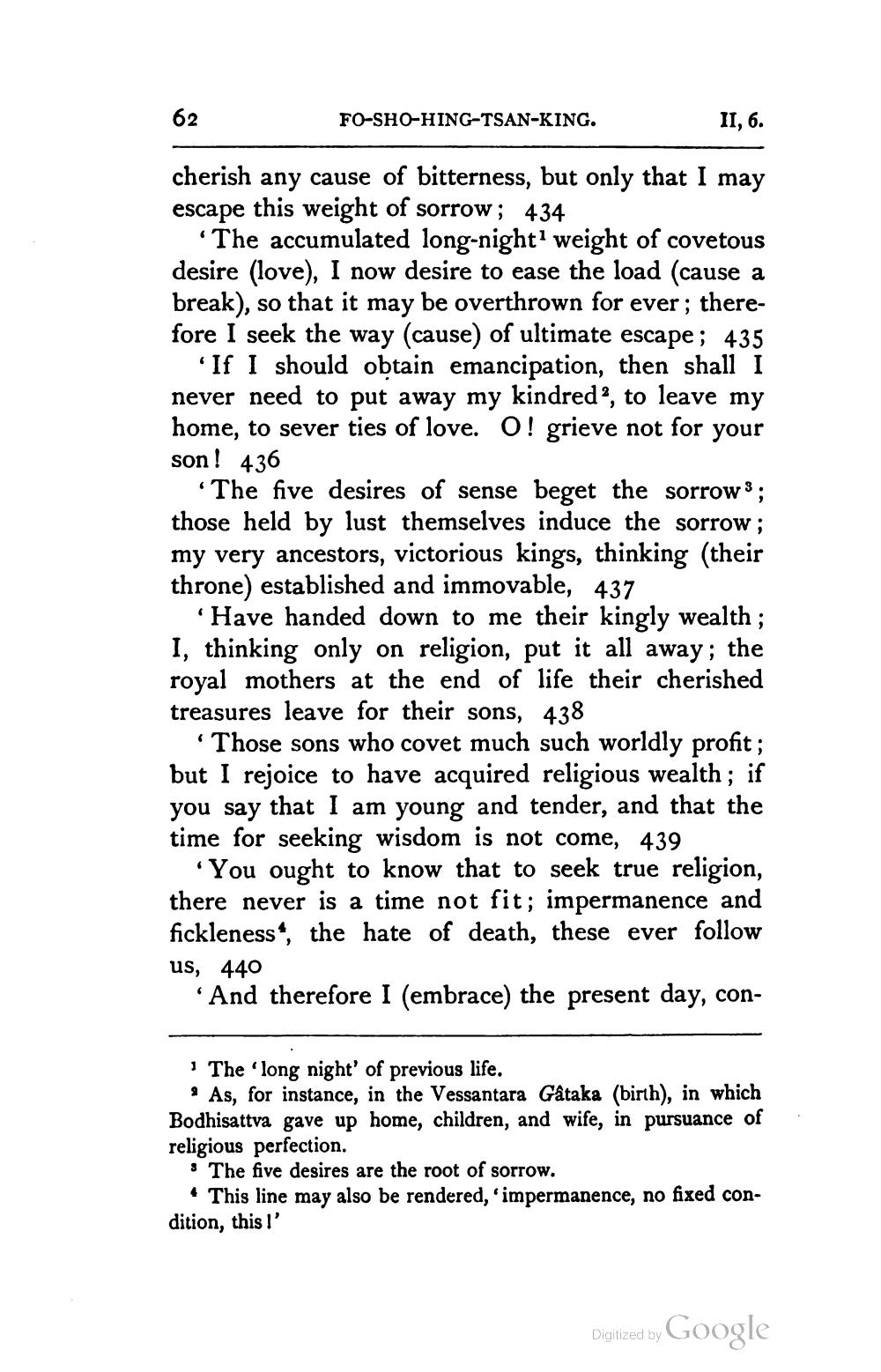________________
FO-SHO-HING-TSAN-KING.
II, 6.
cherish any cause of bitterness, but only that I may escape this weight of sorrow; 434
The accumulated long-night? weight of covetous desire (love), I now desire to ease the load (cause a break), so that it may be overthrown for ever; therefore I seek the way (cause) of ultimate escape; 435
'If I should obtain emancipation, then shall I never need to put away my kindred, to leave my home, to sever ties of love. O! grieve not for your son! 436
The five desires of sense beget the sorrow 3 ; those held by lust themselves induce the sorrow; my very ancestors, victorious kings, thinking (their throne) established and immovable, 437
'Have handed down to me their kingly wealth ; I, thinking only on religion, put it all away; the royal mothers at the end of life their cherished treasures leave for their sons, 438
'Those sons who covet much such worldly profit; but I rejoice to have acquired religious wealth; if you say that I am young and tender, and that the time for seeking wisdom is not come, 439
•You ought to know that to seek true religion, there never is a time not fit; impermanence and fickleness", the hate of death, these ever follow us, 440
'And therefore I (embrace) the present day, con
1 The 'long night' of previous life.
· As, for instance, in the Vessantara Gâtaka (birth), in which Bodhisattva gave up home, children, and wife, in pursuance of religious perfection.
: The five desires are the root of sorrow.
* This line may also be rendered, 'impermanence, no fixed condition, this l'
Digitized by Google




